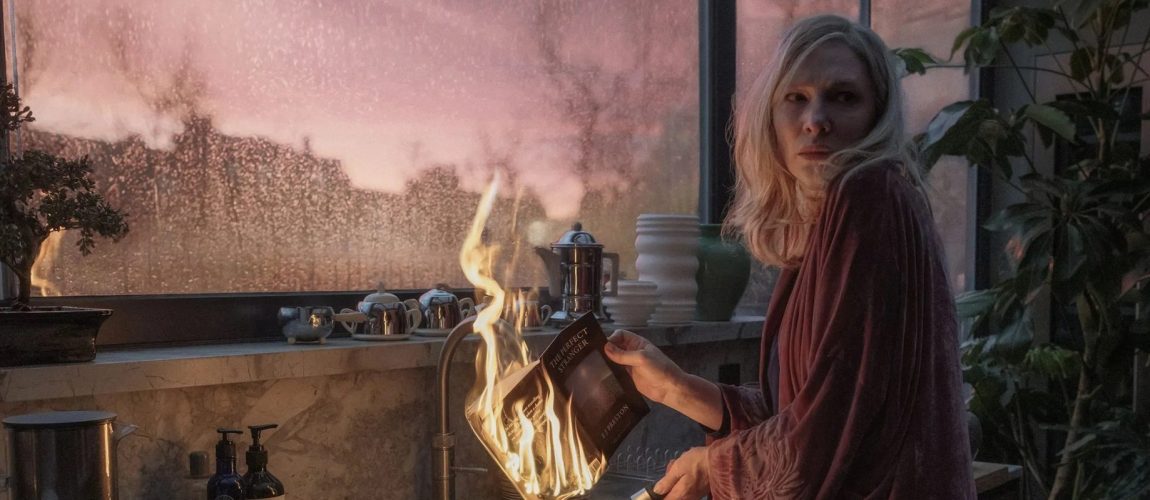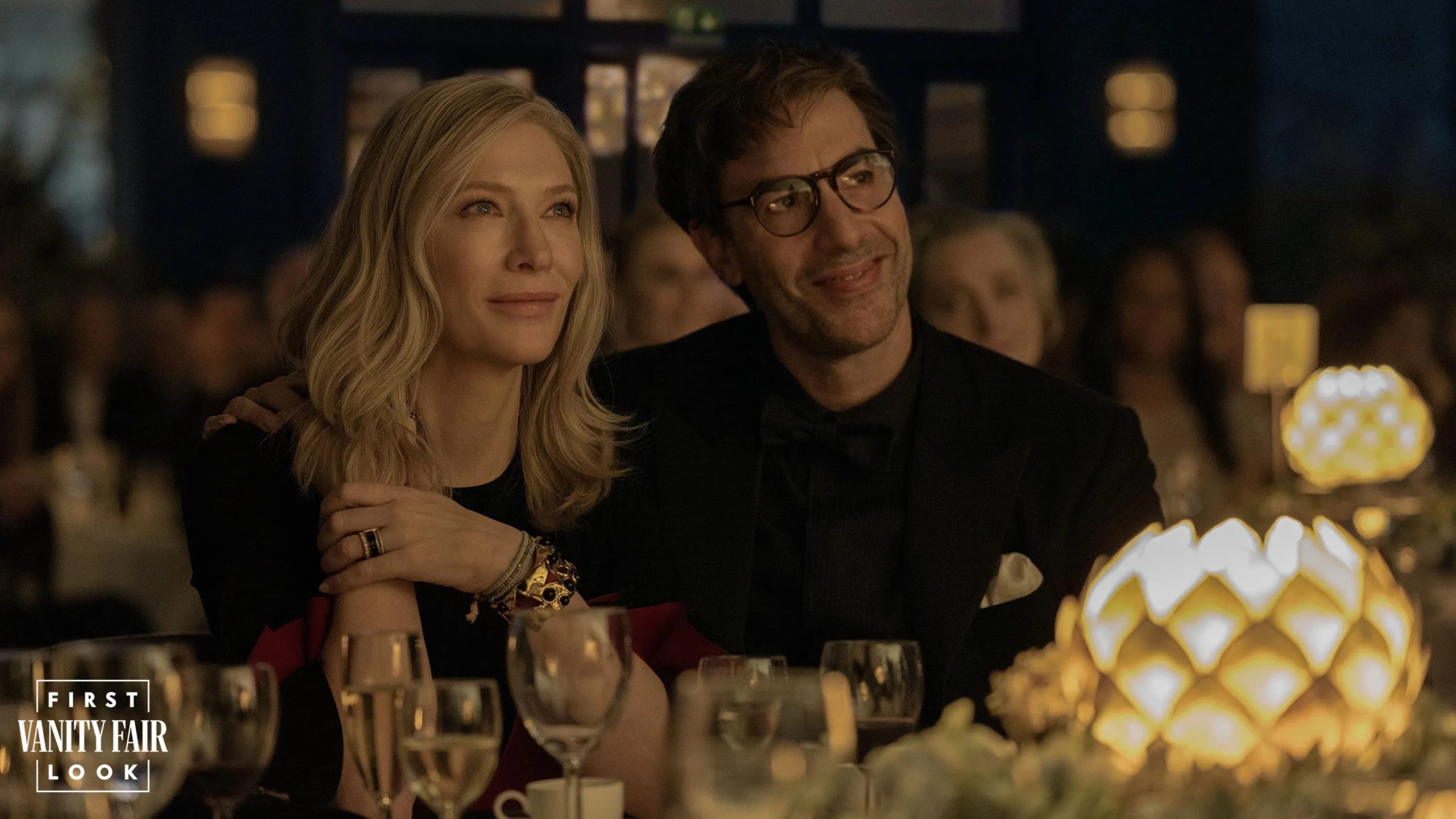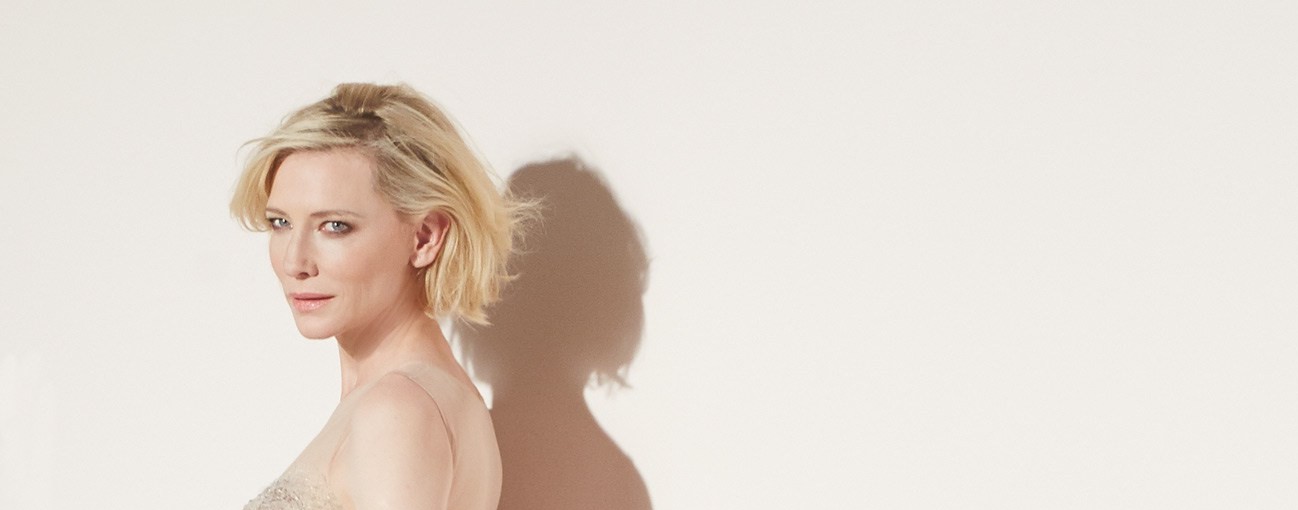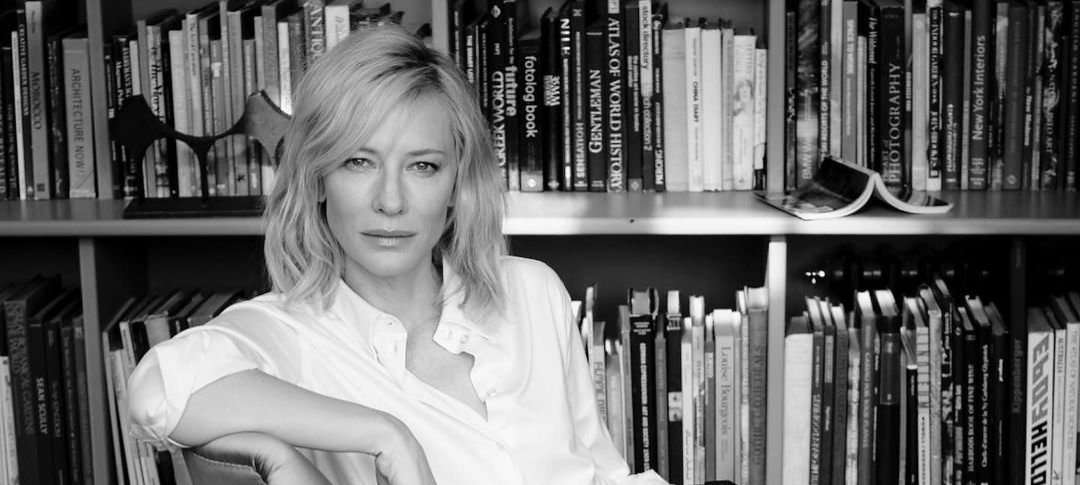An exclusive article with Vanity Fair has been published ahead of the Venice Film Festival premiere of Alfonso Cuarón’s DISCLAIMER set to debut on Apple TV+ on 11 October.
Thank you to Vivien, Sophie, Frauke, and Imke for their donation to the site, we are $50 away to meet our goal for the site hosting renewal this month.
Cate Blanchett spoke about Hoyeon in a profile on the Korean actor/model.
Cate and Gina Gershon will be on Watch What Happens Live on 7 August as part of promotion for Borderlands movie, it will air on Bravo TV.
Disclaimer delivers an ominous warning to viewers in its very title. Alfonso Cuarón’s new Apple TV+ show, which debuts on October 11, stars Cate Blanchett as a powerful journalist who finds troubling details from her own secret past inside the pages of a lurid novel. Kevin Kline is the frail and lonesome old man who publishes it, eager to inflict not just pain, but also humiliation on the woman he believes caused his own loss and sorrows.
The show derives its name from the standard legal indemnification found in the front of nearly every book. In this case, though, the disclaimer is actually a twisted taunt printed in the opening of the book she is sent: “Any resemblance to persons living or dead is not a coincidence.” Disclaimer is a cautionary tale about the urge to punish, and the way half-truths harden into misplaced rage.
“It’s as old as humanity. We have an immense facility to create judgments,” says Cuarón, the five-time Oscar-winning filmmaker behind Roma, Gravity, and Children of Men. “But there’s a pleasure about it. You can see it nowadays in how easily people jump onto the bandwagon. That is a part of humanity that makes us feel a bit above, that makes us feel a bit more comfortable with ourselves. ‘There’s always someone that is a bit worse than me.’”
Public shaming has been a constant throughout human history, of course, but it now takes place at the speed of tweet. “I’m not saying that it hasn’t happened before, but it’s more unified than ever,” Cuarón says. Similar themes also turn up in Blanchett’s 2022 drama Tár.
Blanchett herself describes Disclaimer as dealing with “sharp, quick, and lasting judgments” forged out of harshness rather than empathy. “Maybe we add our voices to the cacophony for fear of being judged ourselves. We are all the heroes of our own narratives, right?” she tells Vanity Fair. “To that end there is much unflattering human behavior depicted in the series.”
In that sense, Disclaimer is not about contemporary cancel culture any more than it’s about the zeal to punish in historic incidents like witch trials, inquisitions, or Red Scares. It’s more focused on personal relationships than mob mentality. The show explores the nature of condemnation, but holds back on pointing fingers. “I’m sure there’s an evolutionary trait there for why we fall into judgments of other people so easily,” Cuarón says. The problem, he adds, is “when those judgments don’t come from informed facts and just come from what other people are talking about, or saying, or claiming.”
Blanchett’s Catherine Ravenscroft is ripe for a public downfall, partly because she has so much to lose. As the show begins, she is a celebrated journalist, admired by coworkers and doted on by her husband, Robert (an obsequious Sacha Baron Cohen), who brings his family’s wealth and power to the equation. Only her 20-something son (The Power of the Dog’s Kodi Smit-McPhee) seems to reject her, but most parents know that’s not uncommon. He has financial and substance abuse problems of his own, and his rejection is a bulwark against her disappointment.
Catherine has also been building barriers within herself as well. Others assume they know her story in part because she struggles to reckon with it herself. “What I became fascinated by was how a person can be altered in imperceptible ways when traumatic events are buried and remain unprocessed,” Blanchett tells Vanity Fair. “People carrying around concealed trauma can have no idea how heavy this burden is, how deep their rage and shame.”
Blanchett says Catherine is susceptible because she’s too paralyzed to express the actual truth: “[She] subconsciously feared her rage would get out of control and so she avoided conflict, avoided standing up for herself or losing her cool with people for fear of her rage exploding. Catherine was to me a person who was misunderstood as being self-contained or stoic, when in fact she was someone who found it difficult to imagine she even had a right to feel anything.”
Cuarón described the character’s buried memories as a kind of toxin infecting her body: “Secrets that you repress, eventually, sooner or later, they find a way to come out into the skin.”
The manuscript’s salacious story is so thinly veiled, and the snapshots of her so clear, that Brigstocke recognizes the woman in question as Catherine Ravenscroft. This sets him off on a plan to self-publish the novel as the first step in a very public downfall.
Brigstocke is an especially dangerous predator because he is camouflaged by his apparent feebleness. Kline credits Disclaimer’s makeup and hair department, headed by Elizabeth Yianni-Georgiou (an Oscar-nominee for Guardians of the Galaxy), as well as costume designer Jany Temime (a veteran of the Harry Potter films)—who gave him a tattered wardrobe highlighted by the too tight, moth-eaten pink sweater that Brigstocke insists on wearing because it was his wife’s favorite.
“In general, I believe the look is meant to be that of a harmless, old ex-professor, conventionally attired so as not to call attention to himself,” Kline says. “But he does let himself go the more he is consumed by his mission.”
In Disclaimer, Hoyeon takes on the role of Kim, an ambitious, passionate collaborator to the TV documentary journalist Catherine Ravenscroft, portrayed by two-time Oscar winner Cate Blanchett. Her first English-speaking role presented quite a challenge. “I was more concerned about expressing English sentiment properly, having lived in Korea all my life, than reciting lines in English,” she explains. “But without facing these challenges, you will never know what you’re capable of, so I faced them head-on. And the environment was perfect for it—having veterans like Alfonso Cuarón and Cate Blanchett. Instead of fearing the pain or difficulty that comes with challenges, I see them as opportunities to level up and envision my future self. It makes me happy to grow with each project.”
Just days before the interview, Hoyeon returned from Shanghai after attending the Louis Vuitton Pre-Fall 2024 show, where she ran into Blanchett. “As anyone would feel in person, Cate is truly an actress with a healthy energy,” she says. “Even while acting alongside her, I couldn’t help but aspire to be an actress and person with such a healthy personality. It was an honor to act with someone I thought I might see only once in my life, and it’s still hard to believe.”
“Having watched Hoyeon light up the screen on Squid Game and her dominate the runway, I was knocked sideways when I met her,” Blanchett tells SSENSE. “Her warmth and openheartedness utterly disarmed me. She is so full of laughter, enthusiasm, and curiosity, but with this incredible facility to morph into the focused, driven character Alfonso was asking her to play. She has a remarkable work ethic and despite her incredible accomplishments, is profoundly humble. I adored every minute of working with her.”
Source: SSENSE





 A Manual for Cleaning Women (202?)
A Manual for Cleaning Women (202?) Father Mother Brother Sister (2025)
Father Mother Brother Sister (2025)  Black Bag (2025)
Black Bag (2025)  The Seagull (2025)
The Seagull (2025) Bozo Over Roses (2025)
Bozo Over Roses (2025) Disclaimer (2024)
Disclaimer (2024)  Rumours (2024)
Rumours (2024)  Borderlands (2024)
Borderlands (2024)  The New Boy (2023)
The New Boy (2023) 











